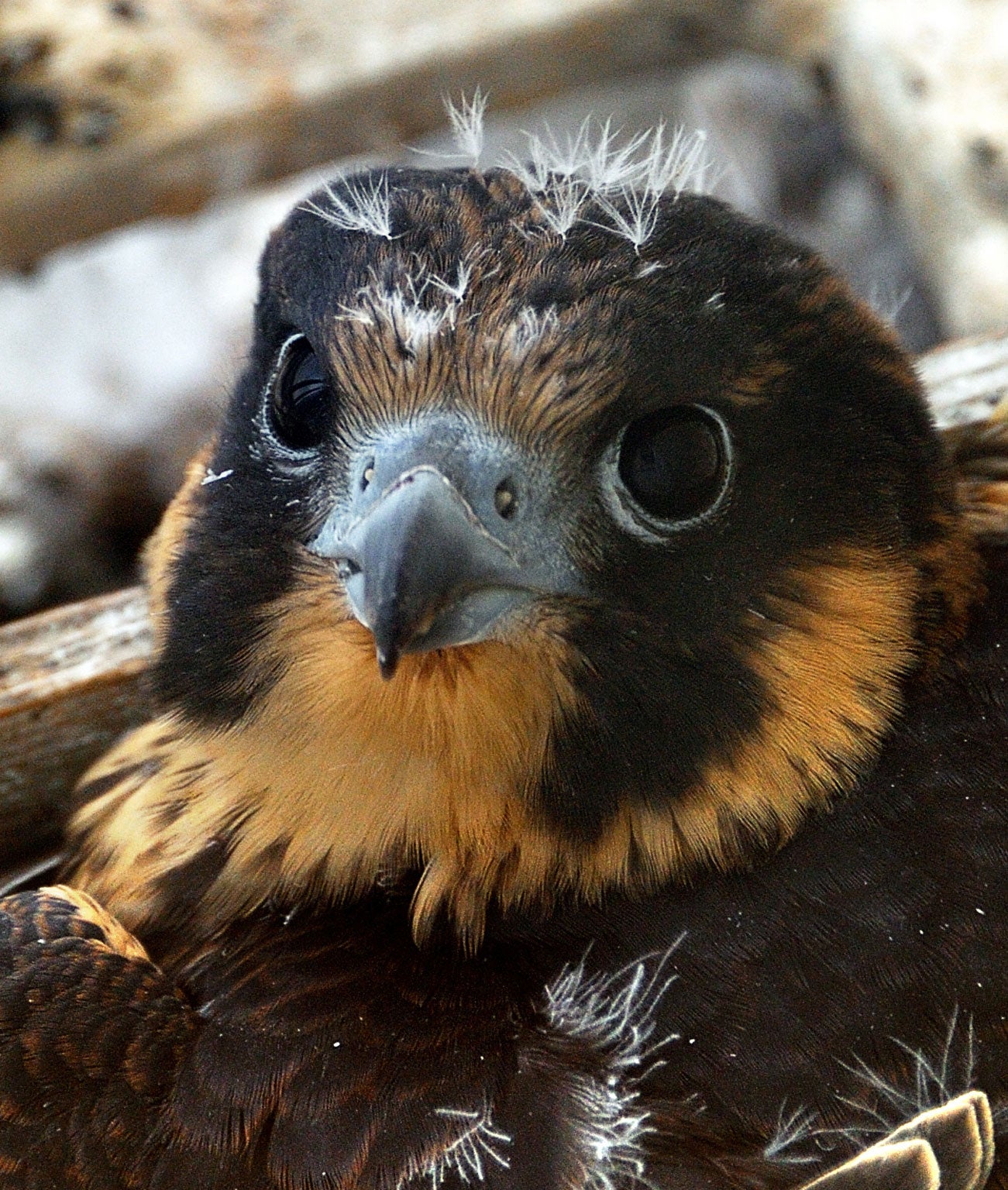Nesting Peregrine Falcon hits Vodafone mobile coverage in Southampton
Peregrine Falcons are protected under the Wildlife and Countryside Act and the company can not legally access the mast until any chicks had fledged

Your support helps us to tell the story
From reproductive rights to climate change to Big Tech, The Independent is on the ground when the story is developing. Whether it's investigating the financials of Elon Musk's pro-Trump PAC or producing our latest documentary, 'The A Word', which shines a light on the American women fighting for reproductive rights, we know how important it is to parse out the facts from the messaging.
At such a critical moment in US history, we need reporters on the ground. Your donation allows us to keep sending journalists to speak to both sides of the story.
The Independent is trusted by Americans across the entire political spectrum. And unlike many other quality news outlets, we choose not to lock Americans out of our reporting and analysis with paywalls. We believe quality journalism should be available to everyone, paid for by those who can afford it.
Your support makes all the difference.It was “great news” that a Peregrine Falcon, a protected bird of prey, had chosen a faulty phone transmitter mast in Southampton to nest, according to Vodafone.
But thousands of residents are feeling less well-disposed towards the unexpected arrival after being told that they could be left without any mobile signal until June.
Vodafone switched off the faulty transmitter in the north of Southampton last week, leaving customers without any phone or mobile internet signal, after the female bird was discovered there.
Peregrine Falcons are protected under the Wildlife and Countryside Act and it is an offence to recklessly disturb a nest, or the freshly-hatched young, of a bird. The Royal Society for the Protection of Birds estimates there are just 1,402 breeding pairs in the UK.
After taking advice from the RSPB and conservation body, Natural England, the phone company said it may have to wait until any chicks had fledged, possibly in June, before it can take action to restore the mast’s transmitter, which has a radius of one mile.
“While this is inconvenient for our customers, it is great news that the falcons are nesting in the city,” said a Vodafone spokesman. The company received praise for placing conservation ahead of commerce.
However for those in the Highfield area, facing an extended mobile “black-out”, bewilderment over the cause of the disruption is turning to anger.
“It’s causing me personally all sorts of problems as well as costing me money,” complained one Vodafone user on the company’s web forum. “I have had to buy a house phone so people can contact me which means clients and patients have now got my personal phone number so can contact me at all times of the day and night.”
The user added: “My family have been unable to contact me. I have to drive out of the area and sit in my car and wait for the messages to come through.”
Students at the University of Southampton are being forced to survive without one of modern life’s essential crutches. “The nesting falcons are stealing my phone signal and my soul,” tweeted a student named Alexandra. “The fact there is a falcon nesting preventing my phone having signal really sums up the state of my life atm. #ohlife”
One frustrated Vodafone customer tweeted: “Someone shoot this bloody falcon so i can have my phone back” whilst another tried to get “falcon stew” trending.
Ominously for the phone company, customers are threatening to switch suppliers. “We won’t be talking about fledglings leaving the nest, we'll be talking thousands leaving Vodafone,” wrote one on the web forum.
Vodafone is hoping to undertake a mission to repair the mast without disturbing the bird. A spokesman said: “The site had developed a fault and when the engineer went there he realised there was a Peregrine Falcon nesting which meant he couldn’t get access. We contacted the RSPB for advice and have since spoken with Natural England on whether we would be allowed access under licence.
“As a consequence we’re being very careful with how we proceed. It does mean that at this point we cannot restore the signal on this single site until we have the right advice. We’ll then know what our options are. We’re looking at alternatives and we’ll update our customers as soon as we can.”
Peregrine falcons, which normally favour rocky cliff tops to make their nests, became almost extinct in the 1960s after their existence was threatened by pesticides. They became a protected species in 1981.
Violation of the law preventing disturbance of their nests can attract fines up to £5,000 per offence or a prison sentence of up to six months.
Michelle Hawkins of Natural England said that in “exceptional circumstances” a licence could be applied for to disturb a bird.
Tony Whitehead, from the RSPB, said: “They (falcons) can not be disturbed during the breeding season. The bird will have fledglings until June so until then the mast is protected.”
Join our commenting forum
Join thought-provoking conversations, follow other Independent readers and see their replies
Comments